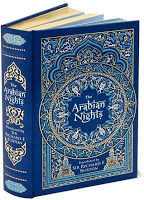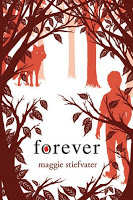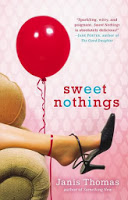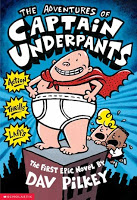I have affiliate relationships with Bookshop.org and Malaprop's Bookstore in beautiful Asheville, NC. I will earn a small commission at no additional cost to you if you purchase merchandise through links on my site. Read more on my affiliate page.
For those 2 people who don’t know, The Arabian Nights is sort of a collection of short stories told in Arabia (which seems to include India and parts of China) waaaaaay back in the day. The framework of the story is about a sultan who caught his wife cheating on him. After he has her killed, he decides to take out his revenge on the entire sex, so he marries a different wife every day and has her killed the next morning. Scheherazade is the Grand Vizier’s beautiful, intelligent daughter. She realizes that this can’t go on, so she comes up with a plan. She asks to be the next wife of the sultan, and she starts telling him a story on their wedding night. But buried within that story is another story. The sultan is so intrigued by the story that he decides to let her live so he can find out how the story ends. She keeps stringing him along like this, theoretically for 1000 nights, until he relents and gives her a full pardon and takes her for his real wife. But that’s only a very small part of the book. The biggest part of the book is the stories Scheherazade tells the sultan. Included are Aladdin, Ali Baba, Sinbad, and others that we’ve probably all heard in one form or another.
I just picked this up because I wanted to see what it was all about. This version was very readable. It was interesting to see a slice of Arabian life. I would catch myself thinking, “They treat women so badly over there” and then I would remember that when these stories were first told, women were treated badly pretty much everywhere. But then there would be some stories where the women had surprising freedom and I would catch myself wondering where things started going bad. I can’t say that I know enough about the culture to comment on what’s changed and what hasn’t, but these stories do give you a little idea of what life is/was like in the Middle East and where they’re coming from. And in these times, a little understanding can only be a good thing.
Reviewed April 21, 2008
Friday Flashback Reviews are a weekly feature here on The Introverted Reader. These are old reviews I wrote on GoodReads. Thanks to Angieville and her Retro Friday Reviews for the inspiration and encouragement!
I have an affiliate relationship with Malaprop’s, my local independent bookstore located in beautiful downtown Asheville, NC; and Better World Books. I will receive a small commission at no cost to you if you purchase books through links on my site.







6 Comments
I have an old copy at home with many beautiful Moghul-style illustrations, but I've been wanting the B&N edition too, just because it's so gorgeous.
I watched an Arabian Nights film adaption (mini-series, maybe) a few years back. Ever since, I've been eager to read the stores and have had my eye on the B&N edition — glad to hear it's readable!
This is why I love reading what you have to say, Enbrethiliel. You just always have some fantastic insight to add. I did not know that some of these stories are folktales or that we have lost some of the real stories. I love what you say about cliffhangers because you are absolutely spot on. I am sick of cliffhangers but these are perfectly executed.
I did read the B&N edition. My husband bought me this gorgeous leather-bound edition as a gift. I bet there are better translations out there, but the B&N version was still very readable.
I had grand plans to read this book this year, but never got to it. Glad to see that you like it. I have an edition in my Nook, but I'm not it's the recommended edition. So I was curious about which edition you tried and what you think of it?
+JMJ+
I remember how disappointed I was when I found out that many of the original stories have been lost to us. (Aladdin's Wonderful Lamp and Ali Baba and the Forty Thieves are folktales from the same region and era, but not necessarily part of Shaharazad's thousand-night story marathon.) I still really wish we could find all of them. The cliffhanger is a much abused literary device these days, and I think these stories, which both end perfectly and yet lead to further possibilities, are excellent examples of cliffhangers done right.